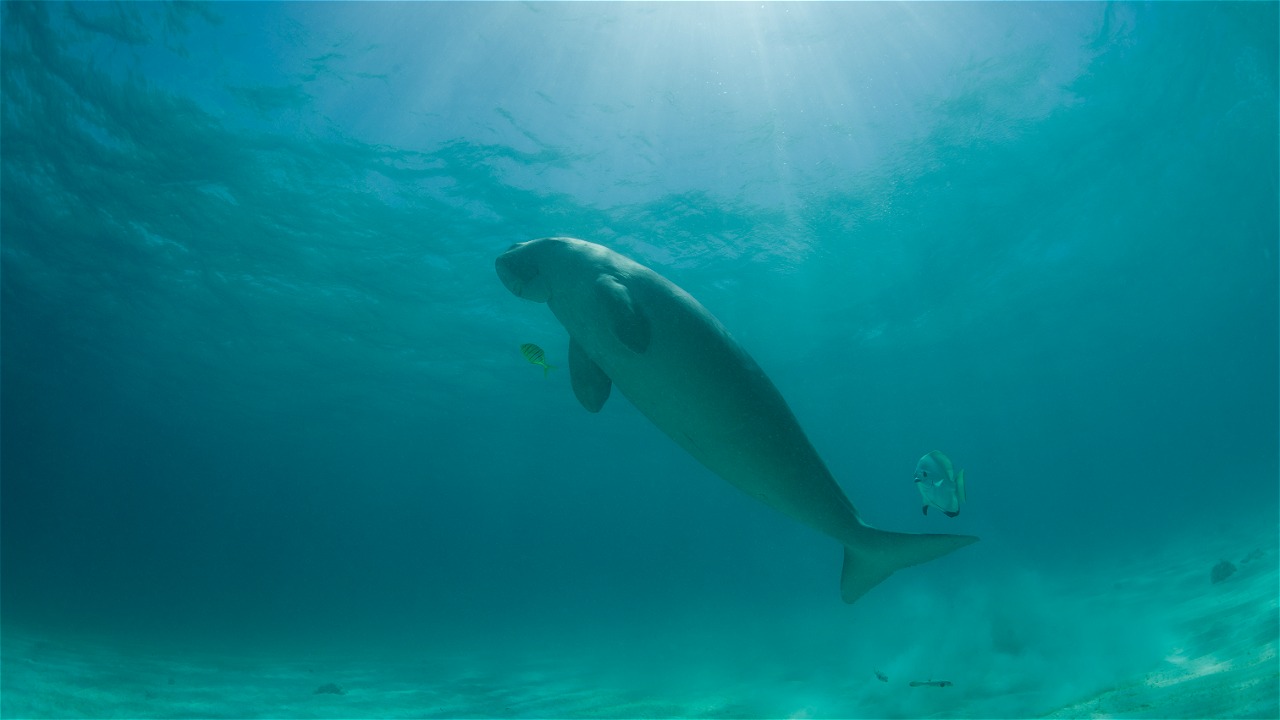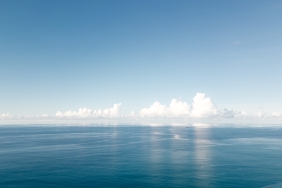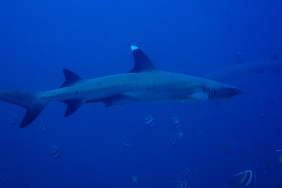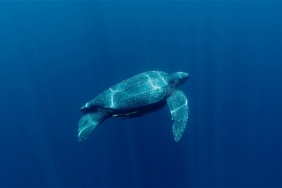WITH ARIFIN PUTRA, DUGYUNG AND SEAGRASS CAMPAIGN PROMOTES ALOR CONSERVATION THROUGH VIDEO
By: Nisa Syahidah (Sunda Banda Seascape Communication & Campaign Assistant, WWF-Indonesia)
"Come one, come all, we plant mangroves
To preserve nature and environment
For containment when waves
Come on, come on, let's do it,"
Mama Martha, the head of the Friendship Love Group (KCP) in Kabola Village, Alor, sings the song complete with hand movements. There is great energy in the vibra of Mama's melodious voice, once in a while accompanied by the sound of small waves touching the mangrove children she planted on the beach. Next to us is a nursery garden containing thousands of polybags of mangrove saplings dominated by the Rhizopora sp species. Since 2008, KCP has been actively planting tens of thousands of mangroves to prevent abrasion in Alor Regency.
With her enthusiasm and homemade corn bose, Mama Martha welcomed WWF-Indonesia team along with Arifin Putra, actor and WWF-Indonesia's supporter who has just been inaugurated as Dugong and Seagrass Conservation Project (DSCP) Ambassador on November 2, 2017. During November 25-30, 2017, we were shooting for a video that highlights the conservation efforts of coastal ecosystems in Alor, as part of the Pantar Strait and Surrounding Waters Natural Reserve (SAP). These three coastal ecosystems are the mangrove ecosystem, coral reefs, and seagrass beds.
The day before (26/11), we walked through the mangrove ecosystem of Aimoli Village, Northwest Alor District, to find a seaweed farm owned by the Tomesah Group - a member of the Alor Seaweed Forum (FoRLa). Several cultivators were busy stretching rope rises full of seaweed seedlings, which will be harvested in 90 days.
"Tomesah is Alorese, meaning of one heart, mind and love," Mr. Ipu, Chairman of FoRLa, explains to us in between shots. The beautiful name is coupled with the group's commitment to implementing environmentally-friendly farming practices, in accordance with WWF-Indonesia's Seaweed Cultivation BMPs.
"The mangrove ecosystem is important for seaweed farming," Mr. Sonter, who serves as Secretary of the Tomesah Group, explained to Arifin, who was sitting with Mama-mama tying seaweed seedlings. "That's why we protect it, we made a regulation that this mangrove is to be taken care of. Whoever uproots and destroys it will be fined," he continues, explaining the Aimoli Village Regulation that prohibits cutting and taking marine life in the mangrove ecosystem - with a fine of Rp500,000 to Rp1,500,000. They understand that mangroves not only resist abrasion, but also contribute to environmental improvement, which will improve the quality of seaweed production as a source of income.
Through their story in this video later, Arifin and WWF-Indonesia, who are members of the DSCP together with the Indonesian Institute of Sciences (LIPI), Bogor Agricultural University (IPB), and the Indonesian Ministry of Marine Affairs and Fisheries (KKP), want to inspire more people to do the same - while appreciating their efforts.
This video will open the public's eyes about the protection status of dugongs (Dugong dugon) and seagrass habitat in Mali Beach, Alor. Not to forget, highlighting the status of the SAP area of Pantar Strait and Surrounding Waters - which since 2016, is experiencing a transfer of authority to manage conservation areas from the district level government to the province (Law No. 23 of 2014).
For this reason, on the following day (28/11), we brought Arifin Putra together with Onesimus Laa, who is familiarly called Pak One. He is a conservationist who has planted thousands of mangrove trees on Sika Island near Mali Airport since 2009. "We took great pains to plant the mangroves, so that when we die we don't leave anything behind, but leave the mangroves for our children and grandchildren," Mr. One told us passionately.
He is a symbol of protection for Sika Island and the seagrass-filled waters of Mali, home to a dugong - which he has named Mawar. Both are within the core zone of the SAP conservation area Pantar Strait and Surrounding Waters - and both are under high tourism pressure. If only we didn't protect them together.





